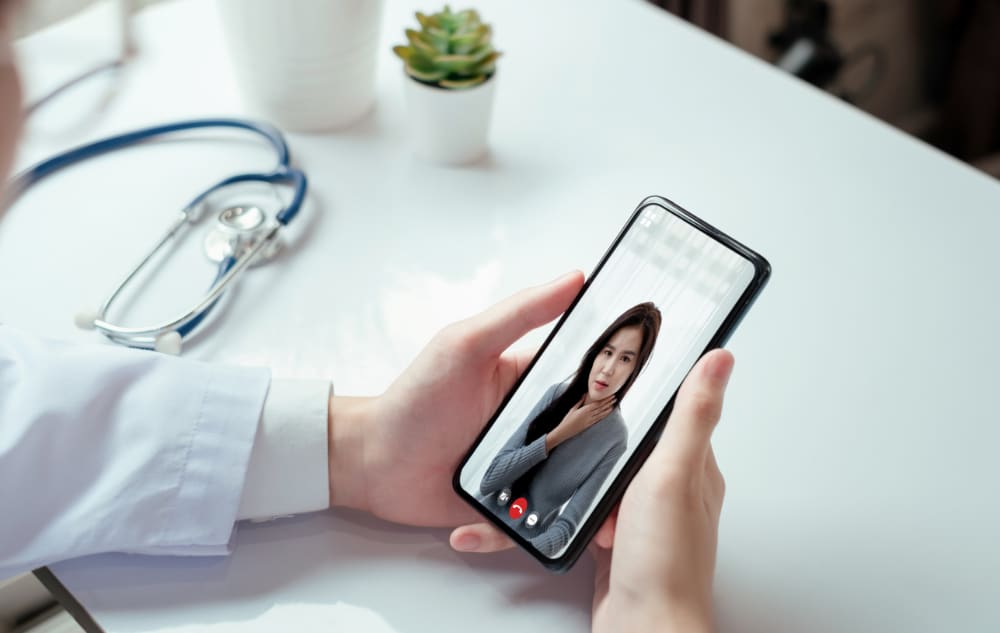AI Chatbots Used in Addiction Recovery Apps

Last year, we did a roundup on the best addiction recovery apps. That was sooo 2024! A year later, we’re dealing with the penetration of artificial intelligence (AI) into the addiction recovery app business in a major way.
Today, addiction recovery apps come packaged with AI therapy chatbots that promise to guide users through recovery from a wide range of substance use issues and mental health issues. Are they any good? Are they dangerous? Are they both? Let’s take a look.
Recently, The New York Times published an analysis of the transcripts between ChatGPT and a man who descended into delusional madness over the course of a 21-day conversation with the AI-powered app. Unlike human conversation, where there is a balance of and back-and-forth, Chat GPT contributed more than a million words vs. the user’s 90,000 — more than 10 to one.
ChatGPT is programmed to be affirmative and supportive. However, this flattery and enthusiasm can encourage users in the wrong direction to the point of believing something that’s not true so firmly that it results in broken relationships, lost employment, hospitalization, and even suicide.
AI-powered chatbots specifically designed for recovery have not been reported to cause this spiral of self-delusion, but they do have a problem with accuracy. Programmed to be supportive, an addiction recovery app suggested to one user that he celebrate his sobriety with “a small hit of meth.” Maybe a not-so-supportive addiction recovery chatbot would work better?
Now, for the low price of only $59, you can purchase the AI Recovery Tough Love Chatbot! It doesn’t tell you what you want to hear, it tells you what you need to hear. The manufacturer, Spiritual Techcraft, promises that the AI Recovery Tough Love Chatbot is:
Brutally honest, fiercely supportive. This AI coach delivers bold, personalized guidance, deep strategy, and relentless motivation to help you change what’s holding you back.
If you don’t need the full digital detox bootcamp, Spiritual Techcraft offers kinder, gentler therapy apps, such as the Sober Support Chatbot Pro, the Sober Support Chatbot Companion, and the Addiction Recovery Chatbot Pro. Buyer beware: These chatbots are only $9.99, but you’ll be coddled. It’s an extra $50 to get “tough love.”
Spiritual Techcraft offers dozens of free chatbots, so you can sample before you buy. They include light versions of their recovery and sobriety apps. I’ve been unable to find any reviews of the AI Recovery Tough Love Chatbot, so I downloaded the light version, and I’ll review it soon here on AddictionNews.
One reason AI chatbots are “sycophantic improv machines” is that users rate their performance more highly when they behave that way. It’s true that you might prefer a subservient praise machine when you’re dealing with customer service. A whole different mindset is required to perform effective cognitive behavioral therapy (CBT).
A recent randomized controlled trial of the therapy chatbot Fido found that a two-week intervention was “effective in reducing depression and anxiety, an effect that was not detected in the control group that was provided self-help materials.”The Fido app has an interesting feature that recognizes suicidal ideation and redirects users to a suicide hotline (9-8-8 Lifeline).
The trial involved 81 persons with “subclinical depression or anxiety,” divided into a chatbot group and a control group so that scores between the two groups matched at baseline. Self-evaluations were made again at the end of the two-week intervention, and one month later.
The results are interesting. People in the control group spent 50% more time with the self-help materials than the chatbot group spent with the app. Anxiety and depression decreased for both groups, slightly more for the chatbot group than the self-help group. The reduced anxiety and depression persisted for both groups when surveyed for a one-month follow-up.
An overview of AI chatbots designed for mental health support found somewhat inconclusive data about their effectiveness. Researchers did cite two AI therapy chatbots with credible track records:
- Woebot uses cognitive behavioral therapy and was found to significantly reduce symptoms of depression and anxiety in young adults.
- Wysa also reported a reduction in self-reported symptoms of depression and reported that 68% of the cohort found the app helpful and encouraging.
The New York Times piece describes one of the most vexing problems of using AI chatbots for recovery: The bots are programmed to maximize profits, often by maximizing user engagement. Addiction recovery chatbots are designed to become an addiction themselves.
It only took one week for the subject of The New York Times piece to plunk down for a $20/month ChatGPT subscription. Soon, he was skipping meals, staying up late, and waking up early to engage with the chatbot. ChatGPT has since been programmed to recommend that users take breaks from the app and get some sleep.
The addition of AI chatbots to addiction recovery apps is a mixed blessing. On the one hand, they provide affordable, accessible support for people struggling with behavior modification. On the other hand, they can become dangerously addictive. The ironic solution for the ChatGPT addict profiled in The New York Times? He used a different AI chatbot to analyze the transcripts and reveal ChatGPT’s ruse.
Written by Steve O’Keefe. First published August 26, 2025.
Sources:
“Chatbots Can Go Into a Delusional Spiral. Here’s How It Happens.” The New York Times, August 8, 2025.
“Therapy Chatbot Tells Recovering Addict to Have a Little Meth as a Treat,” Futurism, June 2024.
“Effectiveness of a Web-based and Mobile Therapy Chatbot on Anxiety and Depressive Symptoms in Subclinical Young Adults: Randomized Controlled Trial,” JMIR Formative Research, March 20, 2024.
“Providing Self-Led Mental Health Support Through an Artificial Intelligence–Powered Chat Bot (Leora) to Meet the Demand of Mental Health Care,” Journal of Medical Internet Research, June 19, 2023.
Image Copyright: champlifezy.




